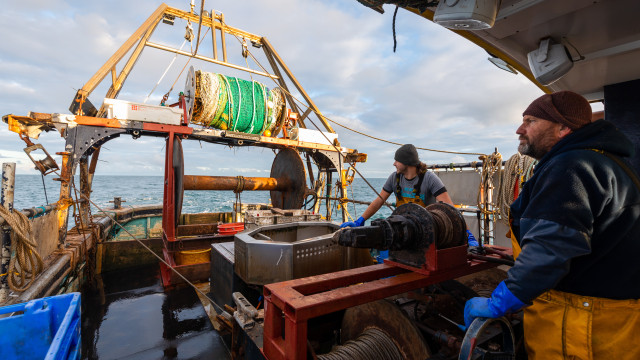After the influx of new employees in the maritime sector dries up, a German company is exploring a potentially revolutionary solution - sending ships without a captain on board.
HGK Shipping, based in the German port of Duisburg, is testing remote navigation from a land-based control center.
Driverless ships are "the only solution for survival as an industry," HGK boss Steffen Bauer told AFP.
The average age of a captain on HGK's 350 ships is about 55, Bauer said. The company claims to be the leading river cargo operator in Europe.
"If we do nothing, we will lose 30 percent of our seafarers by 2030," Bauer added.
In search of a solution, HGK signs a partnership agreement with Belgian start-up Seafar, a leader in the emerging field of autonomous navigation.
Founded in 2019, Seafar already operates four unmanned vessels in Belgium and recently opened an office in Germany, which accounts for 30 percent of inland shipping in Europe.
Unmanned ships are guided by a control center, turning navigation from a drudgery into a potentially more attractive office job.
Cameras and sensors
"There is a market for remote-controlled ships," explained Janis Bargsten, Seafar's commercial director, adding that creating a regulatory framework will take less time than perfecting the technology.
In Duisburg, Seafar and HGK have already set up an autonomous navigation center and are awaiting the approval of the German authorities to launch their first vessels.
In the initial test phase, two captains will remain on board the remotely operated ships.
The long-term goal is to completely eliminate the role of the captain while keeping some of the crew on board.
The technology is similar to that used in self-driving cars: the ships are equipped with sensors, cameras, radar and lidar, transmitting real-time data to the command center.
"Everything is as it would be on board a ship," navigator Patrick Hertoge told AFP in Duisburg next to 10 monitors showing the status of an autonomous barge on its way to Hamburg.
Life on land
After 30 years as captain of his own barge, Hertoghe, 58, was appointed by Seafar to work on the autonomous shipping project.
The son of a seafaring family, he sells his ship and finds a home on land for the first time in his life.
"On a boat, you're on call 24 hours a day. But here, after eight hours, I can go home," Hertoghe said.
Seafar wants to start more pilot schemes in Europe and is in "advanced" talks with the French inland waterways authority. It is also planning a test project in the Baltic Sea.
Autonomous navigation could bring "significant relief" to an industry under pressure but will not solve "all problems", according to a spokesman for the German Federation of Inland Navigation (BDB).
"New issues of liability" require legal clarification, he stressed.
According to Bargsten, in the event of a technical problem, Seafar will be responsible, but human error will be attributed to the shipping company,
Remotely navigating a vessel is still a very demanding job that cannot simply be left to "gamers".
With years of real-life captaincy behind him, Hertoghe is confident he can do the job.
Much of a ship captain's job is the same on land as it is in the control room, he said. The only thing missing is the wind. /BGNES







